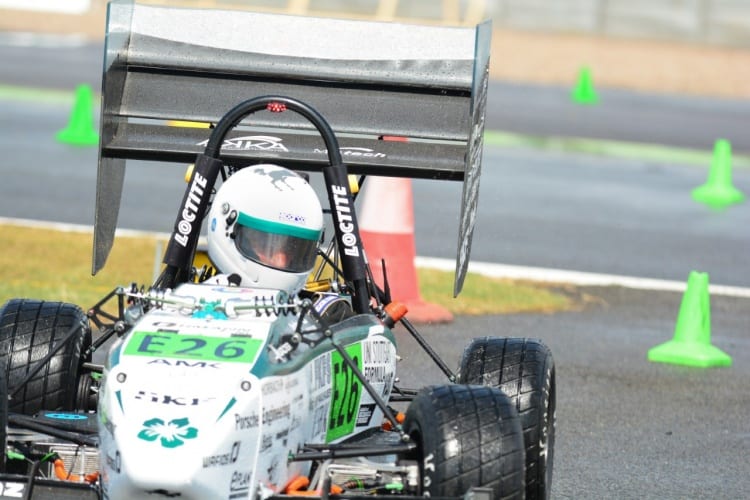But just as professional racing is evolving, so too is the IMechE-run student competition, with electrification becoming an increasingly important factor. The Student Engineer sat down with Formula Student project leader Beth Georgiou to find out how big an impact electric vehicles (EVs) are having.

How big a shift is Formula Student seeing towards electric cars?
The number of electric entries is increasing year on year. This year we had around 50 EV applications for Class 1 and have accepted 32 (the highest number ever) which accounts for roughly one third of Class 1.
Are they hybrids or full electrics?
They are fully electric.
Is this something Formula Student/IMechE is actively encouraging, or something that is happening naturally?
It is happening entirely naturally and reflects a shift in the industry rather than something we are actively encouraging. There are still a great deal of factors to weigh up when teams decide to start running an electric vehicle and it isn’t necessarily the best option for all teams. We welcome EVs and ICs to the competition equally!
Have the rules had to adapt to accommodate the shift towards EVs?
Yes, particularly when we are looking at the safety elements because, of course, the EVs require a totally different set of safety guidelines when they come to the competition. The main competition rules are reviewed every single year, with major rule changes occurring every 2 years.
EVs were first eligible to compete at Formula Student from 2008 for three years in a separate ‘Alternative Fuel’ category (Class 1A), but since 2012, EVs have competed directly against the internal combustion entries in Class 1. Until 2015 the EVs were covered by additional rules specific to Formula Student in the UK, but are now incorporated into the global FSAE rulebook with only a few small differences required for specific events.

Performance-wise, how do electrics generally stack up vs combustion vehicles in FS?
We do limit power to make the competition fair. We have had electric overall competition winners now for the past 3 years (ETH Zurich in 2013, TU Delft in 2014 and 2015), which is certainly significant. Obviously the EVs excel in certain elements of the competition, but ultimately it is an engineering challenge, so the teams need to justify the decisions they have made in terms of business plan, cost and design. The competition result is not just decided out on the track.
Saying that, in 2015 an IC car won the acceleration event overall (an event typically dominated by the EVs) so it’s not totally clear-cut.
Are there any plans for a separate class within Formula Student, similar to Formula E?
At Formula Student UK we do not separate the EVs and ICs as we feel it adds a unique element to our competition and makes it true to the industry. As such, there are no plans to separate them out in the UK, unlike some of the other Formula Student competitions around the world. We are keeping a careful eye on this one and watching the industry and perhaps in the future it would need to be considered.
***
For further information on Formula Student and this year's event, visit www.formulastudent.com

Project to investigate hybrid approach to titanium manufacturing
What is this a hybrid of? Superplastic forming tends to be performed slowly as otherwise the behaviour is the hot creep that typifies hot...